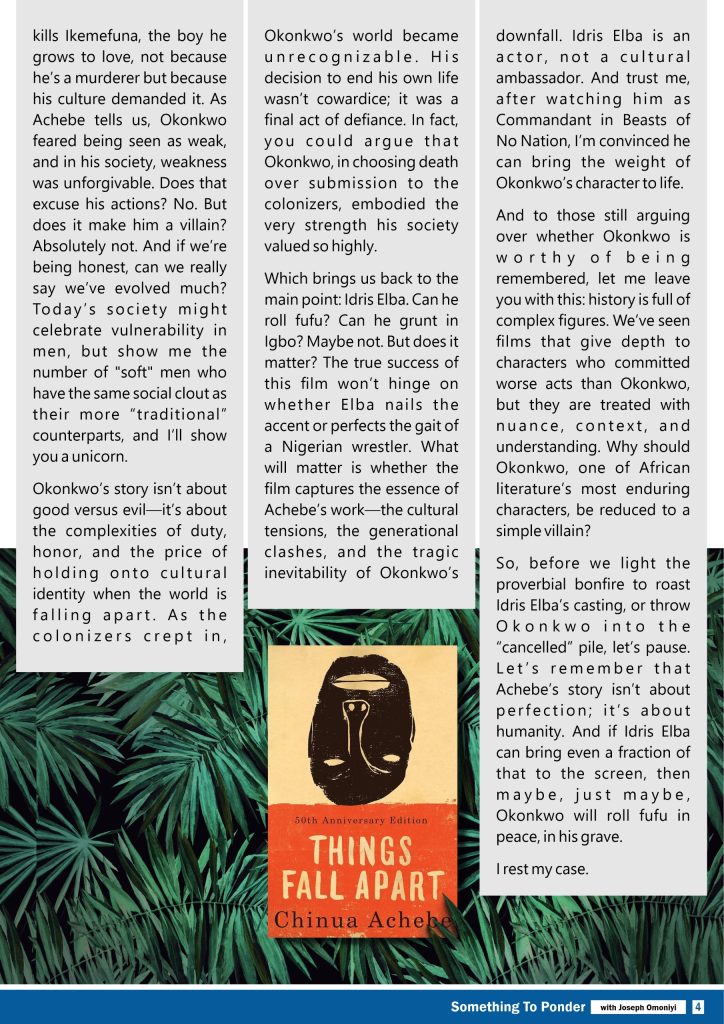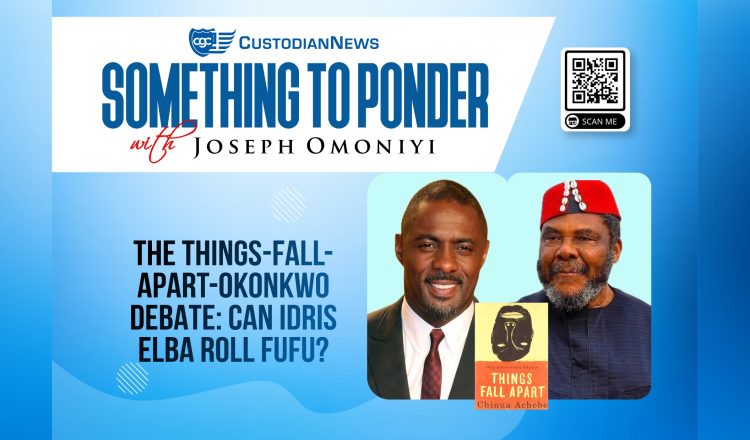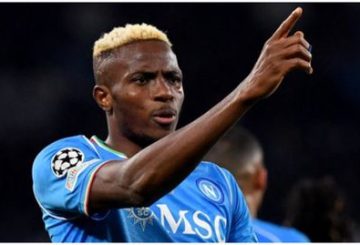Ah, Nigerians and their love for debate! From the Wizkid-vs-Davido Twitter war, to Cardi B’s doing ‘squatting exercises’ with another man while being pregnant with Offset’s baby, to the ideal cast for Okonkwo, we never shy away from voicing opinions, solicited or not. So, here we are again—Chinua Achebe’s Things Fall Apart is heading to the big screen in a new TV series adaptation by American entertainment company, A24, and guess what? The casting of Idris Elba as Okonkwo has sent some of us into a social media frenzy. Not just a ripple, mind you—this is a full-blown tidal wave of hot takes. But here’s a question that might keep you awake at night: Can Idris Elba roll fufu?
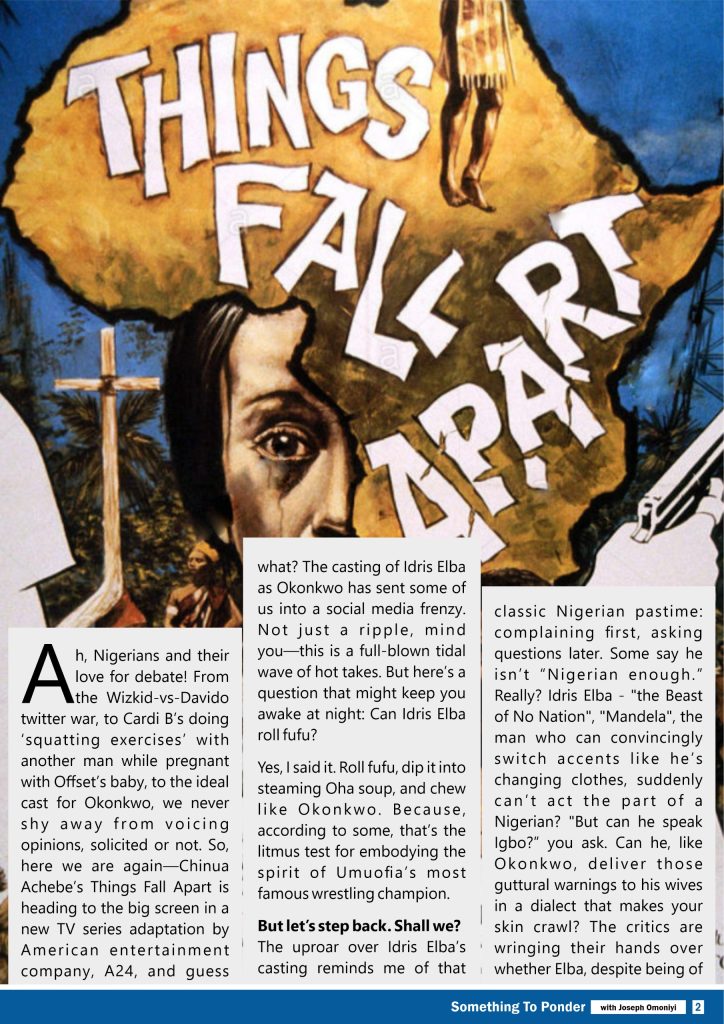
Yes, I said it. Roll fufu, dip it into steaming Oha soup, and chew like Okonkwo. Because, according to some, that’s the litmus test for embodying the spirit of Umuofia’s most famous wrestling champion.
But let’s step back. Shall we?
The uproar over Idris Elba’s casting reminds me of that classic Nigerian pastime: complaining first, asking questions later. Some say he isn’t “Nigerian enough.” Really? Idris Elba – “the Beast of No Nation”, “Mandela”, the man who can convincingly switch accents like he’s changing clothes, suddenly can’t act the part of a Nigerian?
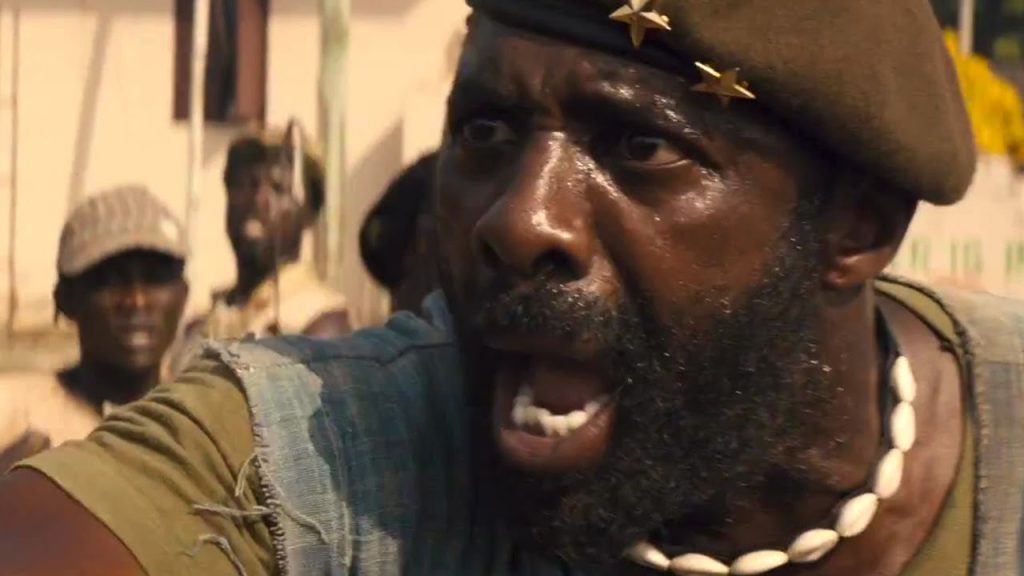
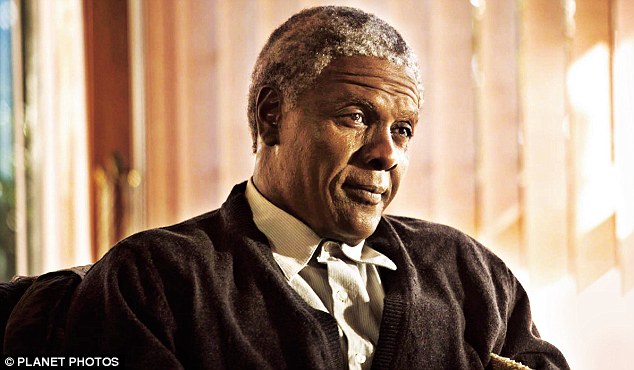
“But can he speak Igbo?” you ask. Can he, like Okonkwo, deliver those guttural warnings to his wives in a dialect that makes your skin crawl? The critics are wringing their hands over whether Elba, despite being of African descent, is ‘qualified’ to play Okonkwo, but isn’t that the least of our concerns? Okay okay okay! He fumbled the Yoruba accent in Asake’s documentary video, but, ‘in your mind of mind’, do you think that’s the biggest concern if you like call it “problem”, of the production company right now? If Asake can, who won’t?
Achebe, if he were alive today, would probably applaud Idris Elba’s portrayal of Okonkwo, recognizing the immense value of sharing his story with a broader audience. This collaboration would not only honor his legacy but also introduce his timeless themes to new generations. While Idris Elba may not be an exact ethnic match for Okonkwo, it’s time to move beyond cultural insulationism. “Things Fall Apart” has transcended borders, translated into multiple languages and resonating globally.
In today’s digital age, cultural exchange and diversity are essential. We enthusiastically celebrate cultural crossovers in music, art, and language. Why, then, should we object to actors from different backgrounds bringing our stories to life on screen? Idris Elba’s involvement could catapult “Things Fall Apart” to new heights, leveraging his global appeal to share this African masterpiece with the world. My sole reservation is whether Elba’s refined demeanor would suit the rugged, traditional setting of Okonkwo’s village. Perhaps adapting the narrative to a contemporary context would better suit his acting style. In our interconnected world, cultural collaboration knows no bounds. Embracing this synergy will amplify our stories, projecting them onto the global stage for all to appreciate.
Anyways, ‘dat wan self no really coincine me too’!
Now, here’s where it gets really spicy. There’s a camp that doesn’t even think Okonkwo should be celebrated at all. One intrepid keyboard warrior called him a villain, stuck in a “regressive mindset,” who (gasp!) even committed suicide—an unpardonable sin in Igbo culture. He wrote: “People saying Okonkwo is a figure in Igbo culture don’t even realize how flawed a character he is. Did you actually read the book or are you just hopping on a bandwagon? You probably think Okonkwo’s a hero. The man’s a villain and a cold-blooded killer stuck in a regressive mindset. As a final slap in the face, he committed suicide—the very thing Igbo culture condemns. So honestly, having a foreigner portray Okonkwo is poetic justice. When the series airs, he’ll be turning in his grave.” WITAF! Well, I almost did the unthinkable myself: reply to a stranger’s social media post. But alas, the ancestors intervened, and a Facebook friend handled it beautifully. James Ogunjimi, if you’re reading this, take a bow.
Let’s settle this here and now. To judge Okonkwo by modern-day standards is like criticizing an antelope for not knowing how to drive a car. You don’t go to a book set in pre-colonial Nigeria expecting to find gender equality workshops and men with feelings. Okonkwo was a product of his time—a time when strength wasn’t just celebrated, it was survival. His father, Unoka, was seen as a failure for preferring music over farming, for crying out loud. Okonkwo, by contrast, built his life on being everything his father wasn’t: tough, unbending, and yes, flawed. If that makes him a villain in your eyes, perhaps it’s time for a re-read.
There’s no denying that Okonkwo’s tale is tragic. He kills Ikemefuna, the boy he grows to love, not because he’s a murderer but because his culture demanded it. As Achebe tells us, Okonkwo feared being seen as weak, and in his society, weakness was unforgivable. Does that excuse his actions? No. But does it make him a villain? Absolutely not. And if we’re being honest, can we really say we’ve evolved much? Today’s society might celebrate vulnerability in men, but show me the number of “soft” men who have the same social clout as their more “traditional” counterparts, and I’ll show you a unicorn.
Okonkwo’s story isn’t about good versus evil—it’s about the complexities of duty, honor, and the price of holding onto cultural identity when the world is falling apart. As the colonizers crept in, Okonkwo’s world became unrecognizable. His decision to end his own life wasn’t cowardice; it was a final act of defiance. You could argue that Okonkwo, in choosing death over submission to the colonizers, embodied the very strength his society valued so highly.
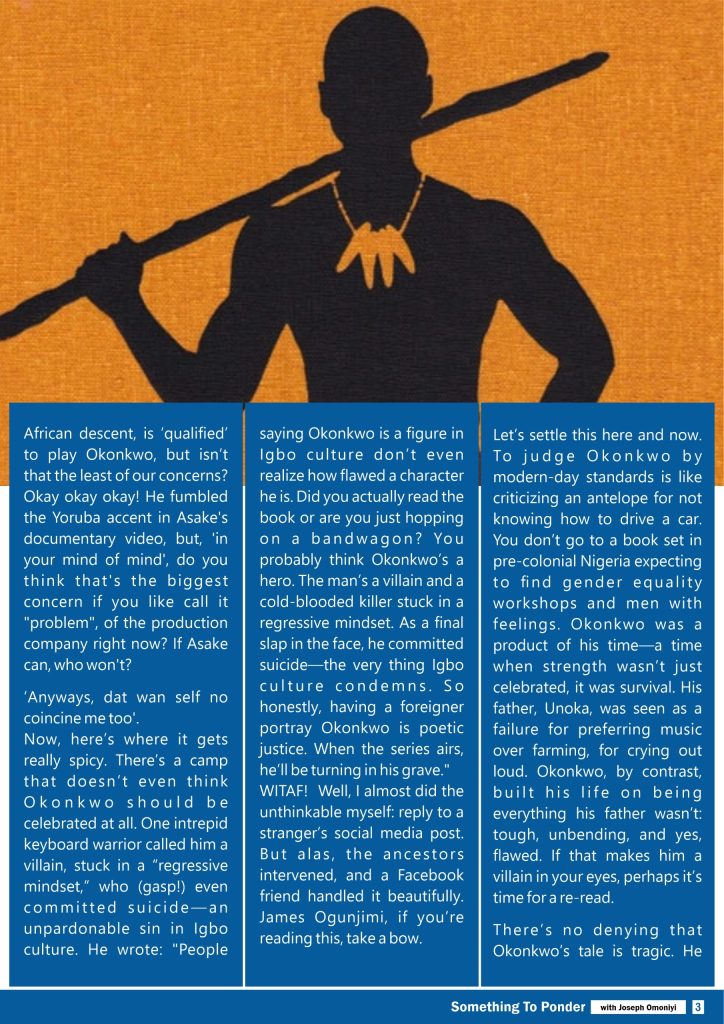
Fairly Used Gods for Sale, Hurry While Stock Lasts
Which brings us back to the main point: Idris Elba. Can he roll fufu? Can he grunt in Igbo? Maybe not. But does it matter? The true success of this film won’t hinge on whether Elba nails the accent or perfects the gait of a Nigerian wrestler. What will matter is whether the film captures the essence of Achebe’s work—the cultural tensions, the generational clashes, and the tragic inevitability of Okonkwo’s downfall. Idris Elba is an actor, not a cultural ambassador. And trust me, after watching him as Commandant in Beasts of No Nation, I’m convinced he can bring the weight of Okonkwo’s character to life.
And to those still arguing over whether Okonkwo is worthy of being remembered, let me leave you with this: history is full of complex figures. We’ve seen films that give depth to characters who committed worse acts than Okonkwo, but they are treated with nuance, context, and understanding. Why should Okonkwo, one of African literature’s most enduring characters, be reduced to a simple villain?
What Are You Doing to Survive in the Nigeria of Tomorrow?
So, before we light the proverbial bonfire to roast Idris Elba’s casting, or throw Okonkwo into the “cancelled” pile, let’s pause. Let’s remember that Achebe’s story isn’t about perfection; it’s about humanity. And if Idris Elba can bring even a fraction of that to the screen, then maybe, just maybe, Okonkwo will roll fufu in peace, in his grave.
I rest my case.
